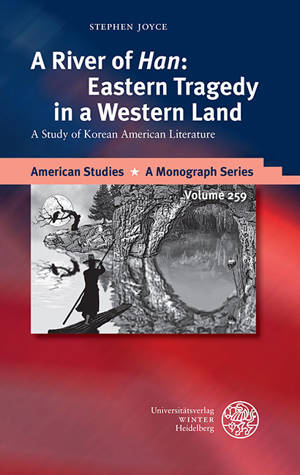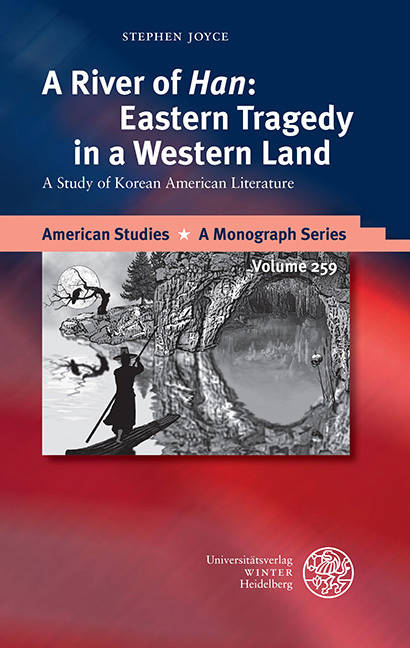
- Afhalen na 1 uur in een winkel met voorraad
- Gratis thuislevering in België vanaf € 30
- Ruim aanbod met 7 miljoen producten
- Afhalen na 1 uur in een winkel met voorraad
- Gratis thuislevering in België vanaf € 30
- Ruim aanbod met 7 miljoen producten
Zoeken
A River of 'Han': Eastern Tragedy in a Western Land
A Study of Korean American Literature
Stephen Joyce
€ 87,45
+ 174 punten
Omschrijving
Is there a non-Western form of tragedy? This volume argues that the Korean concept of han should be considered an Eastern tragic vision which is gaining prominence in the West through the critically acclaimed works of diasporic writers such as Nobel Prize-nominee Richard E. Kim, Theresa Hak Kyung Cha, and Chang-rae Lee. Through close readings of the works of leading Korean American authors, the book explicates the philosophical, historical, and postcolonial roots of 'han' and its distinctive aesthetics in contrast to classical Western tragedy. It then examines how specific authors deploy this concept to portray the cultural conditions of Asian Americans and offers powerful insights into the interplay of cultural memory and aesthetics. Finally, the tragic vision offers a counterpoint to many of the optimistic visions of social change that underpin contemporary theories of ethnic or postcolonial fiction and offers a critical perspective on foundational theoretical assumptions.
Specificaties
Betrokkenen
- Auteur(s):
- Uitgeverij:
Inhoud
- Aantal bladzijden:
- 397
- Taal:
- Engels
- Reeks:
- Reeksnummer:
- nr. 259
Eigenschappen
- Productcode (EAN):
- 9783825364588
- Verschijningsdatum:
- 1/05/2015
- Uitvoering:
- Hardcover
- Formaat:
- Genaaid
- Afmetingen:
- 145 mm x 216 mm
- Gewicht:
- 544 g

Alleen bij Standaard Boekhandel
+ 174 punten op je klantenkaart van Standaard Boekhandel
Beoordelingen
We publiceren alleen reviews die voldoen aan de voorwaarden voor reviews. Bekijk onze voorwaarden voor reviews.








